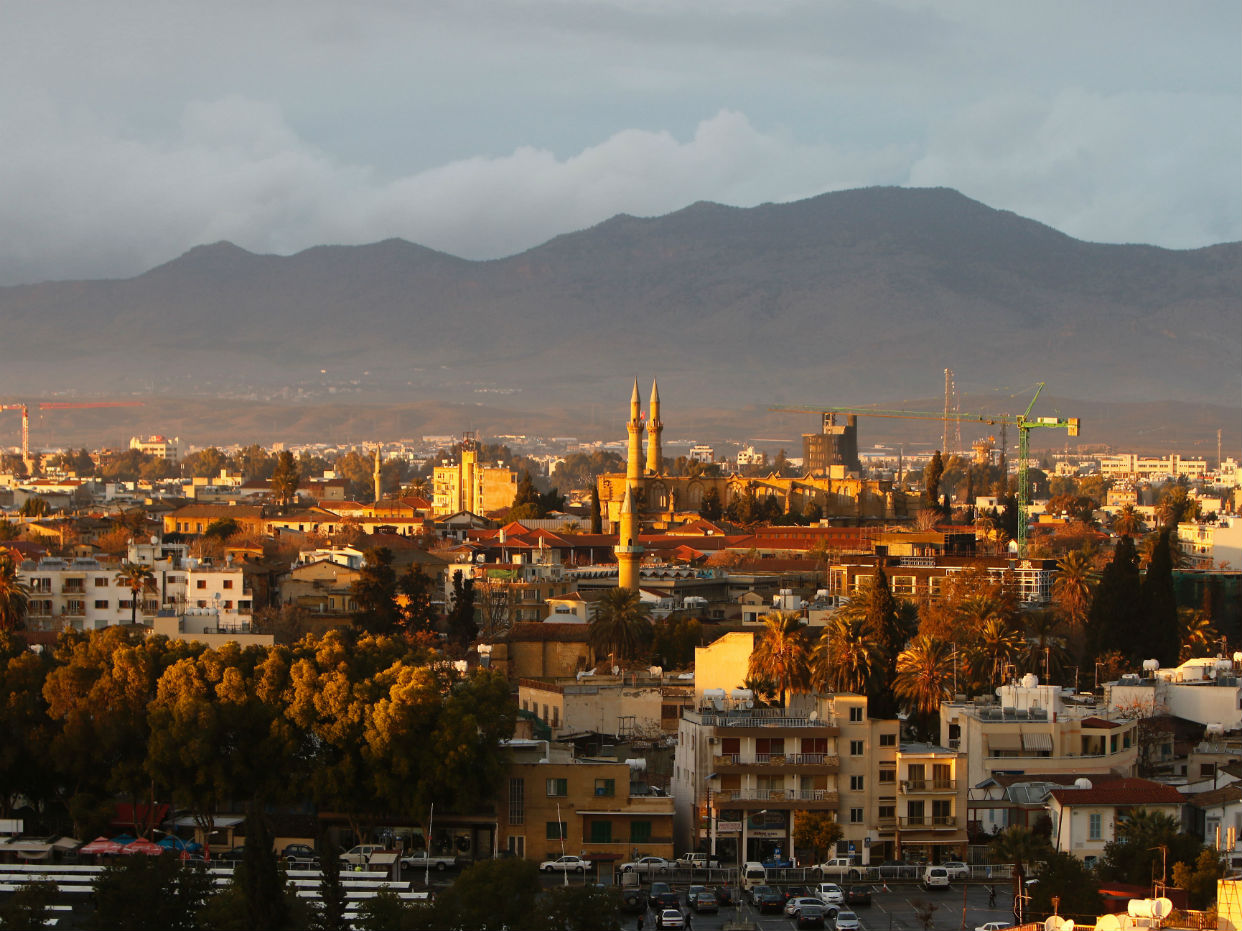Cyprus talks on reunification collapse
After more than 40 years of division, with the Mediterranean island ever be one again?

A free daily email with the biggest news stories of the day – and the best features from TheWeek.com
You are now subscribed
Your newsletter sign-up was successful
Talks to reunify the divided island of Cyprus collapsed this morning after a tumultuous final session reportedly marred by yelling and drama.
Antonio Guterres, the UN secretary-general, told a news conference: "I'm very sorry to tell you that despite the very strong commitment and engagement of all the delegations and different parties... the conference on Cyprus was closed without an agreement being reached."
Guterres hoped to reunite the island under Greek-Cypriot President Nicos Anastasiades and Mustafa Akıncı, the Turkish-Cypriot leader. He insisted that "other initiatives" could be developed.
The Week
Escape your echo chamber. Get the facts behind the news, plus analysis from multiple perspectives.

Sign up for The Week's Free Newsletters
From our morning news briefing to a weekly Good News Newsletter, get the best of The Week delivered directly to your inbox.
From our morning news briefing to a weekly Good News Newsletter, get the best of The Week delivered directly to your inbox.
Diplomats said Turkey had appeared to be offering little to Greek-Cypriots wanting a full withdrawal of Turkish troops from the island, although they had indicated readiness to make concessions on Turkish-Cypriot demands for a rotating presidency, the other key issue.
Why is Cyprus divided?
Sectarian conflict erupted after the island gained independence from Britain in 1960, culminating in Turkey's invasion of the northern part of the island in 1974 and subsequent declaration of an independent breakaway state.
For more than 40 years, UN troops have patrolled a buffer zone separating Cyprus, an EU member state, from its unrecognised northern third.
A free daily email with the biggest news stories of the day – and the best features from TheWeek.com
The status of the Greek-Cypriots displaced by the invasion and of their abandoned properties was the leading issue in the discussions, along with the future of the 30,000 Turkish troops still stationed there.
"The Greek side insists they must all be pulled out, while the Turkish side says some must remain," says Reuters.
Will Cyprus ever be unified?
"Relations between Greek and Turkish Cypriots have warmed" in recent years, says Foreign Affairs, but hopes of reunification may have been "misplaced".
The rise of nationalist politics in Turkey, as well as tensions with the EU over Syria and the refugee crisis, mean neither Ankara not Athens is especially disposed to compromise.
-
 Labor secretary’s husband barred amid assault probe
Labor secretary’s husband barred amid assault probeSpeed Read Shawn DeRemer, the husband of Labor Secretary Lori Chavez-DeRemer, has been accused of sexual assault
-
 Trump touts pledges at 1st Board of Peace meeting
Trump touts pledges at 1st Board of Peace meetingSpeed Read At the inaugural meeting, the president announced nine countries have agreed to pledge a combined $7 billion for a Gaza relief package
-
 Britain’s ex-Prince Andrew arrested over Epstein ties
Britain’s ex-Prince Andrew arrested over Epstein tiesSpeed Read The younger brother of King Charles III has not yet been charged
-
 Epstein files topple law CEO, roil UK government
Epstein files topple law CEO, roil UK governmentSpeed Read Peter Mandelson, Britain’s former ambassador to the US, is caught up in the scandal
-
 Iran and US prepare to meet after skirmishes
Iran and US prepare to meet after skirmishesSpeed Read The incident comes amid heightened tensions in the Middle East
-
 Israel retrieves final hostage’s body from Gaza
Israel retrieves final hostage’s body from GazaSpeed Read The 24-year-old police officer was killed during the initial Hamas attack
-
 China’s Xi targets top general in growing purge
China’s Xi targets top general in growing purgeSpeed Read Zhang Youxia is being investigated over ‘grave violations’ of the law
-
 Panama and Canada are negotiating over a crucial copper mine
Panama and Canada are negotiating over a crucial copper mineIn the Spotlight Panama is set to make a final decision on the mine this summer
-
 Why Greenland’s natural resources are nearly impossible to mine
Why Greenland’s natural resources are nearly impossible to mineThe Explainer The country’s natural landscape makes the task extremely difficult
-
 Iran cuts internet as protests escalate
Iran cuts internet as protests escalateSpeed Reada Government buildings across the country have been set on fire
-
 US nabs ‘shadow’ tanker claimed by Russia
US nabs ‘shadow’ tanker claimed by RussiaSpeed Read The ship was one of two vessels seized by the US military